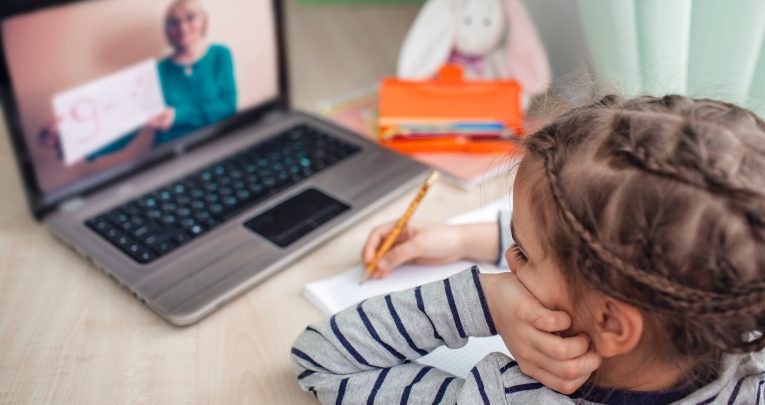Will there be a lockdown learning legacy?

Let's shift our focus to the emotional and social aspects of schooling, says Lord Jim Knight

When will our primary schools reopen? Noises from government suggest it won’t be before June and then in a phased way.
There also appear to be “no plans” to open over the summer. And it looks like when they do re-open they will need to maintain social distancing, with all the associated problems of class sizes and controlling social spaces.
However a carefully managed return plays out, one thing is for sure: the shutdown has provided us with an opportunity to re-evaluate many aspects of education, particularly the role of online learning.
There has been a long standing interest in online learning and its role in our schools, but in the past few weeks it has jumped suddenly from the edge to the mainstream.
Our primary teachers quickly grasped the challenge of moving learning online in extremely difficult circumstances and worked swiftly to employ a range of existing technology platforms to help support children’s learning during the lockdown.
Larger organisations and government then came in to support children and their parents with resources to support home schooling. Schools and organisations across the sector joined together to develop Oak National Academy and the BBC launched three months of online and broadcast programming for pupils of primary and secondary ages – initiatives we at Tes Global are closely involved in.
As we look beyond lockdown it is becoming clearer that online learning will remain a part of schooling.
We know it is not perfect, and experiences have ranged from the good to the poor, but I think that online will have a more prominent profile in learning after this episode is behind us.
A test of how the blend of online and offline learning may work is likely when schools reopen.
Heads and teachers do have concerns about the practicalities of social distancing, especially with younger primary children, so we may see a situation in which our schools operate in shifts so that they can accommodate pupils as safely as possible.
Part time schooling will be a headache for heads. Technology can help with timetabling and classroom seating plans, and online learning could help to supplement face to face classroom teaching.
In the meantime, schools will continue to focus on delivering at least an outline curriculum for children over the next few weeks – and make a special effort to target additional learning support to children who need it.
I also think it would be helpful if schools, government and parents, and the broader education community, could shift their expectations and make this brave new temporary world more about social and emotional support and contact for pupils rather than just learning outcomes.
In those distant days before the pandemic struck, we struggled to strike the right balance between the academic, the emotional and the social. Since we’re in a time where the rapid reinvention and re-evaluation of learning has become commonplace, I believe that we should play to our natural instincts as social and emotional animals and focus more on the emotional and social aspect of schooling.
Technology can make this easier to achieve in the school shutdown. It is, for example, easier for classes to come together regularly in an online learning or video conferencing platform so that children maintain a sense of class community and learning and pastoral leadership from their teacher. It’s an opportunity for children to gather in a common space and connect with each other as well as learn.
I know there are many primary schools across the country already adopting this kind of approach with morning and afternoon ‘check-in’ sessions and I think it is useful to look to these schools for inspiration.
There is certainly a need for wellbeing support at this time. For example, Tes’s subsidiary Educare has seen huge demand from schools for their online training around children’s mental health which they developed with the charity Young Minds.
At the end of all this we will need to reflect on what we have learned about teaching and learning, technology and ourselves.
I am sure the debate about the validity of Y6 SATs will gain further traction if teacher assessments provide an adequate solution this summer.
The role of parents as partners in children’s education will also be a consideration, given that parents have had to step up and play a far more prominent role in their child’s learning in recent weeks.
It has been an extraordinary time for our primary schools. Heads and teachers across the country have proven their remarkable energy, their commitment and their inventiveness in shifting schooling to the online realm.
Once we are through this period and looking forward to at least a partial return to normality, the next challenge will be to ensure that some of the changes leave a lasting legacy.
Lord Jim Knight is chief education and external officer at Tes Global, an international education business supporting schools in their work to improve children’s lives through education. He is a Member of the House of Lords and a former schools minister.








